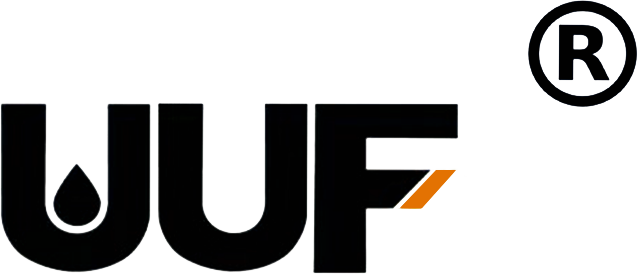Comprehensive Guide to Mitsubishi Oil Seals: Enhancing Automotive Efficiency
Time:
2025-05-12
Mitsubishi oil seals play a crucial role in the automotive sector, particularly in the field of rubber sealing components. These seals are designed to prevent the leakage of fluids, such as oil, coolant, and transmission fluid, from critical engine and transmission parts. By doing so, they help maintain optimal performance of the vehicle while maximizing its lifespan. Here's a closer look at the t
Mitsubishi oil seals play a crucial role in the automotive sector, particularly in the field of rubber sealing components. These seals are designed to prevent the leakage of fluids, such as oil, coolant, and transmission fluid, from critical engine and transmission parts. By doing so, they help maintain optimal performance of the vehicle while maximizing its lifespan. Here's a closer look at the technical aspects and benefits of using Mitsubishi oil seals in automotive applications.
Firstly, oil seals are engineered to withstand various conditions, including high temperatures, pressure fluctuations, and exposure to harsh chemicals. Mitsubishi's expertise in rubber technology ensures that their oil seals are made from high-quality materials, which provide excellent resistance to wear and tear. This durability is essential for vehicles operating in diverse environments, from extreme heat to cold weather conditions.
Secondly, the design of Mitsubishi oil seals incorporates precision engineering to achieve a perfect fit within the assembly. A proper fit is critical as it minimizes the risk of fluid leakage and enhances sealing effectiveness. Manufacturers often employ advanced techniques such as computer-aided design (CAD) to optimize the shape and size of the seals, ensuring they meet stringent industry standards. This meticulous attention to design ultimately leads to improved vehicle efficiency and reduced maintenance costs.
Moreover, Mitsubishi oil seals can be customized to meet specific application requirements. Various factors, such as the type of fluid being sealed, the operating temperature range, and the pressure conditions, can influence the choice of oil seal. Mitsubishi offers a variety of seal designs, including lip seals, rotary seals, and others, to accommodate these diverse needs. This customization capability allows automotive engineers to select the most suitable seal for their particular applications, ensuring optimal performance and reliability.
Another advantage of Mitsubishi oil seals is their contribution to overall vehicle safety. By preventing fluid leaks, these seals help maintain critical lubrication within the engine and transmission, reducing the risk of overheating or mechanical failure. Additionally, they play a vital role in ensuring that the vehicle’s braking and steering systems operate efficiently, which is essential for driver safety.
In conclusion, Mitsubishi oil seals are a vital component in the automotive industry, contributing to the efficiency, reliability, and safety of vehicles. Their durability, precision engineering, and customization options make them an excellent choice for automotive applications. By understanding the technical benefits and applications of Mitsubishi oil seals, automotive professionals can make informed decisions to enhance vehicle performance and longevity.
Firstly, oil seals are engineered to withstand various conditions, including high temperatures, pressure fluctuations, and exposure to harsh chemicals. Mitsubishi's expertise in rubber technology ensures that their oil seals are made from high-quality materials, which provide excellent resistance to wear and tear. This durability is essential for vehicles operating in diverse environments, from extreme heat to cold weather conditions.
Secondly, the design of Mitsubishi oil seals incorporates precision engineering to achieve a perfect fit within the assembly. A proper fit is critical as it minimizes the risk of fluid leakage and enhances sealing effectiveness. Manufacturers often employ advanced techniques such as computer-aided design (CAD) to optimize the shape and size of the seals, ensuring they meet stringent industry standards. This meticulous attention to design ultimately leads to improved vehicle efficiency and reduced maintenance costs.
Moreover, Mitsubishi oil seals can be customized to meet specific application requirements. Various factors, such as the type of fluid being sealed, the operating temperature range, and the pressure conditions, can influence the choice of oil seal. Mitsubishi offers a variety of seal designs, including lip seals, rotary seals, and others, to accommodate these diverse needs. This customization capability allows automotive engineers to select the most suitable seal for their particular applications, ensuring optimal performance and reliability.
Another advantage of Mitsubishi oil seals is their contribution to overall vehicle safety. By preventing fluid leaks, these seals help maintain critical lubrication within the engine and transmission, reducing the risk of overheating or mechanical failure. Additionally, they play a vital role in ensuring that the vehicle’s braking and steering systems operate efficiently, which is essential for driver safety.
In conclusion, Mitsubishi oil seals are a vital component in the automotive industry, contributing to the efficiency, reliability, and safety of vehicles. Their durability, precision engineering, and customization options make them an excellent choice for automotive applications. By understanding the technical benefits and applications of Mitsubishi oil seals, automotive professionals can make informed decisions to enhance vehicle performance and longevity.
Keyword:
Mitsubishi oil seal


















